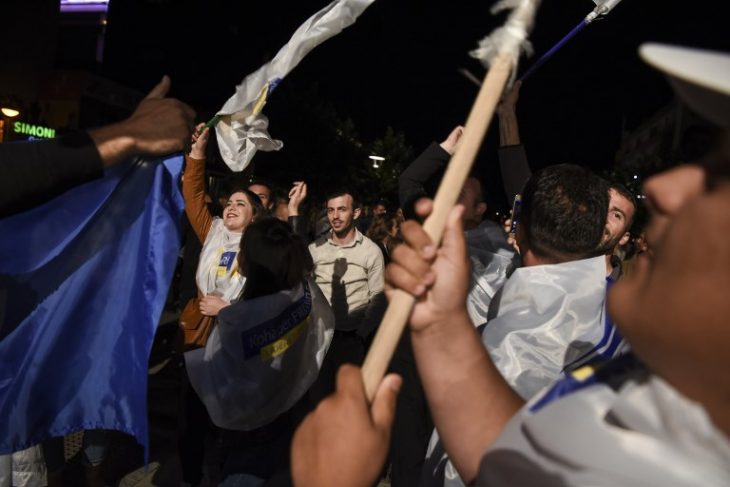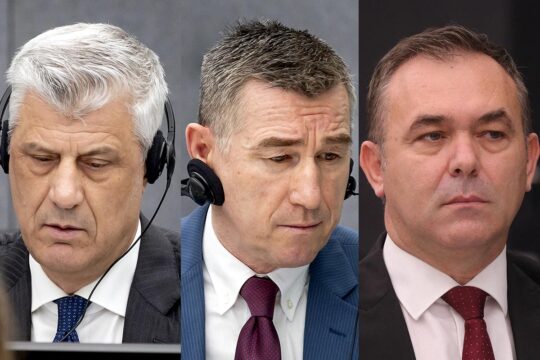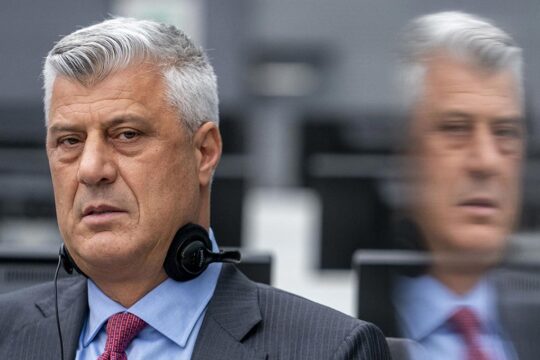Kosovo voted Sunday for a new parliament that will have to navigate tense relations with Serbia, endemic corruption and possible war crimes indictments for some of its leaders.
The early general election is only the third since Kosovo unilaterally declared independence in 2008, but it "might be the hardest to predict," according to Florian Bieber, professor of Southeast European Studies at the University of Graz in Austria.
A month after the last government lost a confidence vote, the battle for a new prime minister pitches an ex-guerrilla commander against a former student protest leader and an economist likened to French President Emmanuel Macron.
The polls, monitored by a European Union mission, closed at 1700 GMT across the country of about 1.8 million people, most of whom are ethnic Albanian.
"This time I voted for the young generation. I've had enough of the current politicians. I hope we get rid of them once and for all," said Gani Protoptani, a 65-year-old retired high school teacher.
Overshadowing the vote is a new special court set up to try war crimes allegedly committed by members of the pro-independence Kosovo Liberation Army (KLA), which fought Serbian forces in the late 1990s.
Among those some speculate could be on the list of indictees -- which may be announced later this year -- are President Hashim Thaci and outgoing speaker Kadri Veseli, who both hail from the powerful Democratic Party of Kosovo (PDK).
The European Centre for Minority Issues, a Germany-based research institute, said the court's arrest warrants "compounded with the political agenda, may severely hamper or even bring about the fall of the future government".
The threat it poses could explain why the PDK decided to end its ruling coalition with the Democratic League of Kosovo (LDK), said political scientist Loic Tregoures, a Balkans specialist.
The party may have pushed for a snap election to consolidate its position before the court begins work, he said.
- Rival coalitions -
The PDK's new alliance is expected to win the most votes and has been dubbed the "war wing" coalition owing to the prominence of former KLA fighters.
The coalition's candidate for prime minister is Ramush Haradinaj, known as "Rambo", whom Serbia wants to try for war crimes.
Haradinaj has criticised EU-brokered talks between Belgrade and Pristina aimed at "normalising" relations. He says they should only move forward if Serbia recognises Kosovo -- an unlikely prospect.
Another coalition has emerged around the centre-right LDK party, closer to civil society groups.
Its candidate for premier is outgoing finance minister Avdullah Hoti. He has pushed a strongly pro-European platform and earned the nickname "Kosovo's Macron", promising to take on corruption.
Nearly 20 years after the war, political elites in Kosovo are "characterised by crime, corruption and nepotism," according to an assessment by the Slovenia-based International Institute for Middle-East and Balkan Studies.
In a country where half of the population is aged under 30, the unemployment rate is officially at 27.5 percent and young people are leaving in droves in search of a better life elsewhere.
- Tear gas protests -
To deny the "war wing" alliance power, Hoti would have to turn to the Vetevendosje (Self-Determination) party of former student leader Albin Kurti, which has adopted radical methods and is also strongly anti-corruption.
Kurti and fellow party members repeatedly threw tear gas in parliament to prevent a law passing on a border demarcation deal with Montenegro.
The EU has made the deal a prerequisite to liberalising Kosovo's visa regime, but its opponents say it deprives Kosovo of land.
The protesters are also opposed to an association -- agreed on in the talks with Belgrade -- that would grant Kosovo's Serb minority greater autonomy.
Although Kosovo's independence has been recognised by more than 110 countries, Serbia still refuses to acknowledge it.
Kosovo's Serbs, who number between 100,000 and 150,000, voted Sunday to elect 10 of the 120 deputies in parliament.





